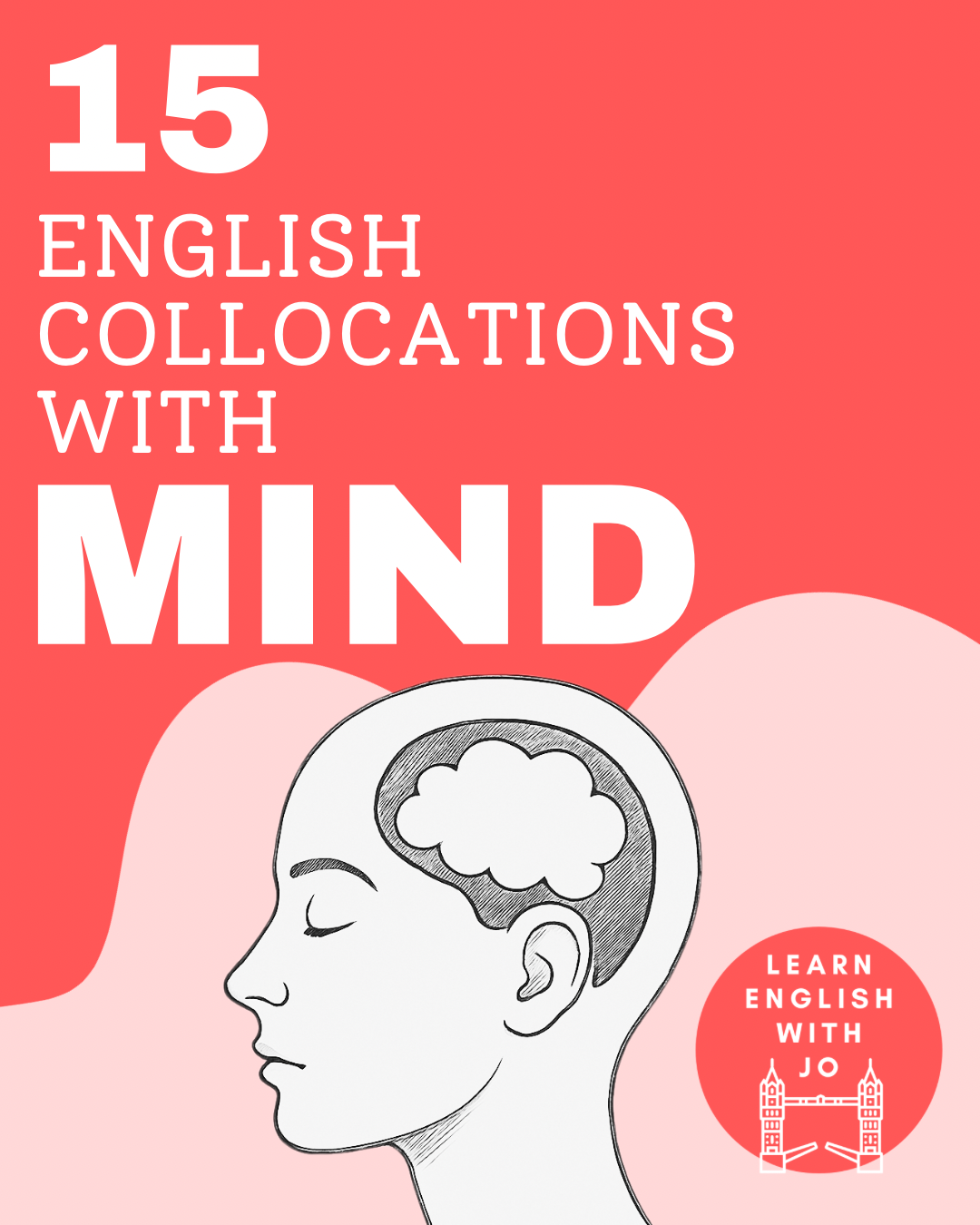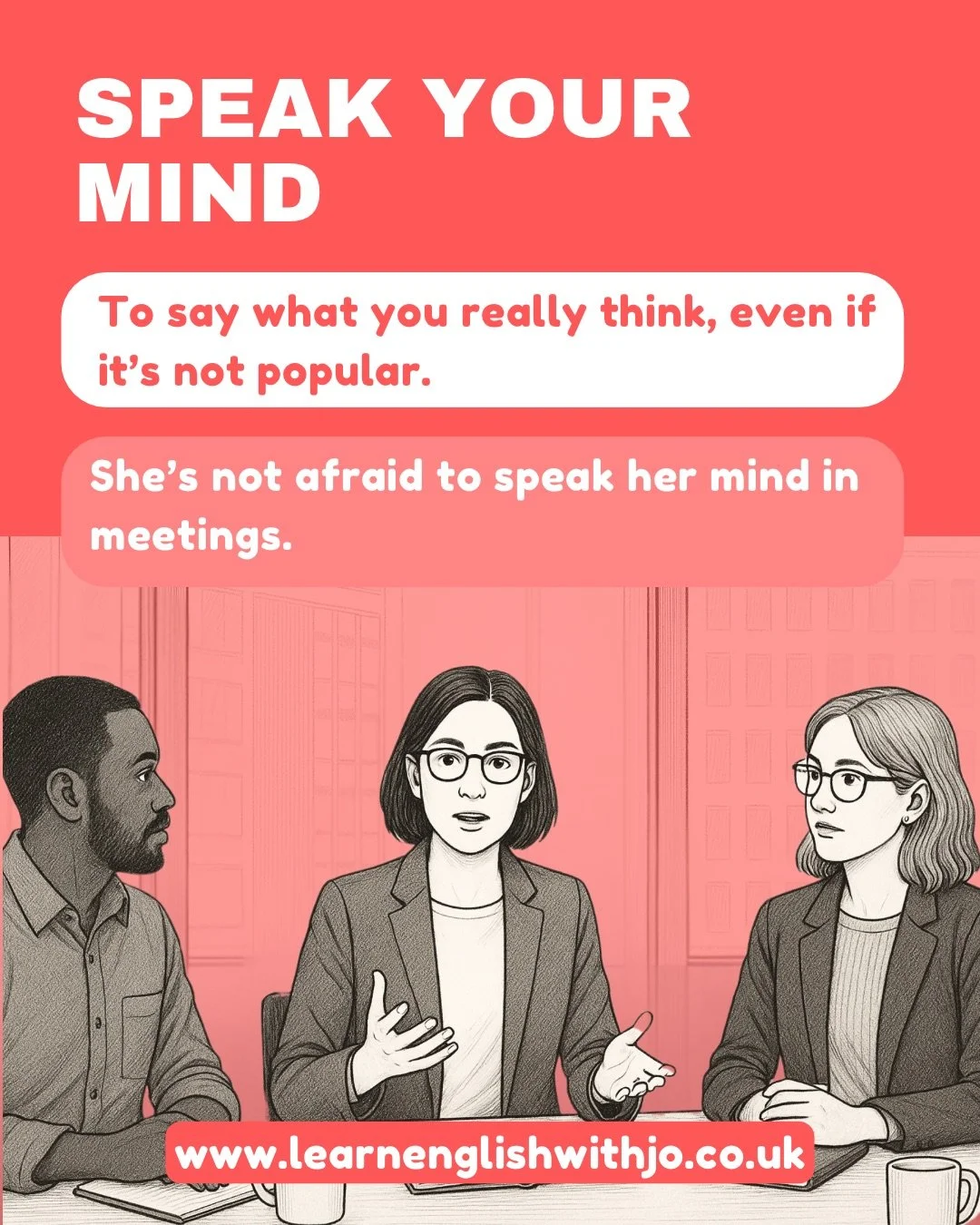15 Common English Collocations with ‘Mind’
The word ‘mind’ appears in lots of English expressions. We use it to talk about remembering things, making decisions, describing how we feel, and even connecting with others.
Here are 15 useful collocations with ‘mind’ that will help you sound more natural and fluent in everyday English.
1. Slip your mind
To ‘slip your mind’ means to forget something.
Sorry I didn’t reply . Your message completely slipped my mind!
It’s an easy, natural way to admit you’ve forgotten something without sounding too formal.
2. Bear in mind
To ‘bear something in mind’ means to remember or consider it.
Bear in mind that the shop closes at 6 p.m.
You’ll hear this one in both professional and everyday settings.
3. Make up your mind
To ‘make up your mind’ means to decide.
You need to make up your mind. Are you coming or not?
It’s often used when someone takes a long time to choose or keeps changing their opinion.
4. Cross your mind
If something ‘crosses your mind’, it means you think about it briefly.
It crossed my mind to call you, but I thought you’d be busy.
It’s used when an idea or thought appears for a moment and then passes.
5. Read someone’s mind
To ‘read someone’s mind’ means to know what another person is thinking without them saying it.
You’ve made tea? You must have read my mind!
It’s often used playfully when someone seems to anticipate what you want or need.
6. Speak your mind
If you ‘speak your mind’, you say exactly what you think (even if it’s not what people want to hear!)
She’s not afraid to speak her mind in meetings.
This can be positive or negative depending on the situation, but it usually suggests honesty and confidence.
7. Peace of mind
‘Peace of mind’ means a feeling of calm and freedom from worry.
Having travel insurance gives me peace of mind when I’m abroad.
It’s one of those lovely phrases that captures emotional comfort perfectly.
8. Change your mind
To ‘change your mind’ means to decide something different from before.
I was going to move to Paris, but I’ve changed my mind.
We all do this from time to time.
9. State of mind
Your ‘state of mind’ is the way you feel or think at a particular time.
She’s not in the right state of mind to make that decision.
It’s often used when someone is stressed, emotional, or distracted.
10. Set your mind on something
If you ‘set your mind on something’, you’re determined to achieve it.
Once he sets his mind on something, there’s no stopping him.
It’s all about focus and determination.
11. Mind over matter
‘Mind over matter’ means using willpower to overcome physical or emotional challenges.
Running a marathon is pure mind over matter!
It’s a reminder that mental strength can be just as powerful as physical ability.
12. Be in two minds
If you’re ‘in two minds’ about something, you’re unsure or undecided.
I’m in two minds about accepting the new job. It’s great, but it’s far away.
This one is particularly British and very common in everyday conversation.
13. Open mind
Having an ‘open mind’ means being willing to listen to and consider new ideas.
Try to keep an open mind when you meet people from different cultures.
It’s a positive quality that suggests curiosity and flexibility.
14. One-track mind
Someone with a ‘one-track mind’ only thinks or talks about one thing.
He’s got a one-track mind. All he ever talks about is football.
It can be said with humour or a hint of gentle teasing.
15. Out of your mind
If someone is ‘out of their mind’, they’re either behaving irrationally or extremely worried.
She must be out of her mind to go swimming in that weather!
It’s often used in an exaggerated, joking way.
Learning collocations like these is one of the quickest ways to sound more natural in English. Instead of memorising single words, focus on the chunks that native speakers use together. It’s how fluent communication really works.







